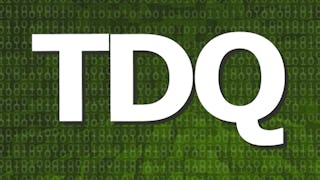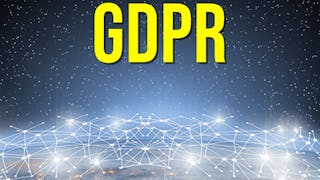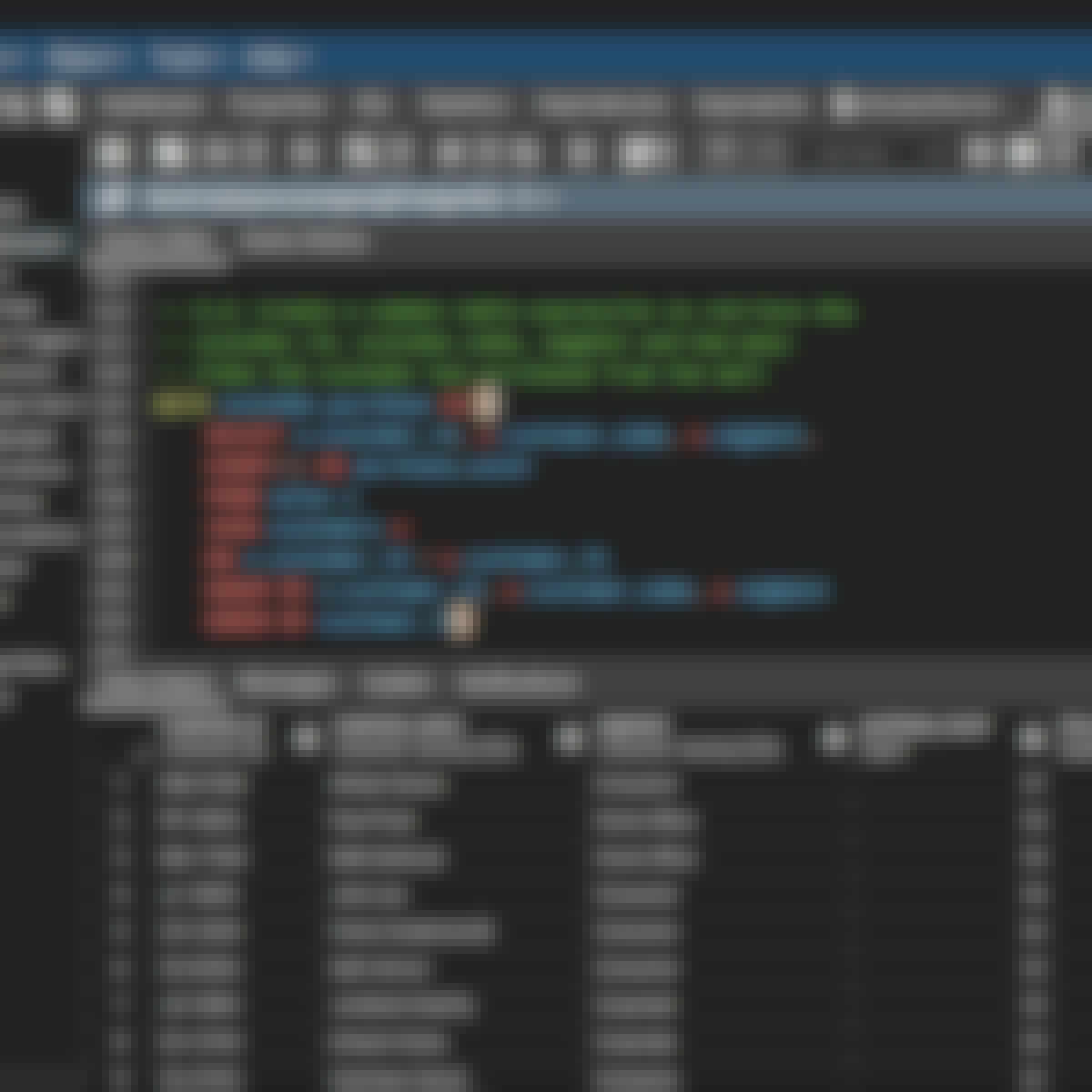- Browse
- Database
Database Courses
Database courses can help you learn data modeling, SQL querying, database design, and data normalization. You can build skills in optimizing queries, managing transactions, and ensuring data integrity. Many courses introduce tools like MySQL, PostgreSQL, and MongoDB, demonstrating how to implement these skills in real-world applications. You'll also explore concepts such as relational databases, NoSQL systems, and data warehousing, equipping you to handle various data management challenges effectively.
Popular Database Courses and Certifications
 Status: FreeFreeA
Status: FreeFreeAAmazon Web Services
Skills you'll gain: Microsoft SQL Servers, Database Management, Data Migration, Amazon Web Services, Database Administration, User Accounts
4.7·Rating, 4.7 out of 5 stars27 reviewsBeginner · Course · 1 - 4 Weeks
 Status: Free TrialFree TrialU
Status: Free TrialFree TrialUUniversity of Michigan
Skills you'll gain: Data Quality, Quantitative Research, Data Validation, Data Integrity, Data Governance, Data Collection, Quality Assurance, Data Processing, Data Strategy, Data Analysis, Data Management, Model Evaluation, Data Preprocessing, Data Access, Statistical Analysis, Sampling (Statistics), Verification And Validation, Design Strategies, Threat Detection
4.6·Rating, 4.6 out of 5 stars56 reviewsBeginner · Specialization · 1 - 3 Months
 I
IISC2
Skills you'll gain: Cryptography, Key Management, Public Key Infrastructure, Encryption, Cryptographic Protocols, Data Security, Public Key Cryptography Standards (PKCS), Cybersecurity, Application Security, Authentications, Brute-force attacks, Data Integrity, Algorithms
4.8·Rating, 4.8 out of 5 stars93 reviewsBeginner · Course · 1 - 4 Weeks
 Status: FreeFree
Status: FreeFreeSkills you'll gain: Database Design, MySQL Workbench, MySQL, Relational Databases, SQL, Database Management, Data Manipulation, Data Migration, User Acceptance Testing (UAT), Scalability
4.8·Rating, 4.8 out of 5 stars8 reviewsIntermediate · Guided Project · Less Than 2 Hours
 Status: PreviewPreviewK
Status: PreviewPreviewKKnowledge Accelerators
Skills you'll gain: General Data Protection Regulation (GDPR), Information Privacy, Personally Identifiable Information, Law, Regulation, and Compliance, Compliance Management, Regulation and Legal Compliance, Regulatory Requirements, Data Ethics, Compliance Reporting, Data Governance, Data Security, Data Management, Data Integrity, Data Processing
4.9·Rating, 4.9 out of 5 stars71 reviewsBeginner · Course · 1 - 3 Months
 Status: NewNewStatus: Free TrialFree Trial
Status: NewNewStatus: Free TrialFree TrialSkills you'll gain: Cryptography, Object Oriented Programming (OOP), File I/O, Encryption, Data Structures, Software Development, Data Visualization, Model Evaluation, Automation, Machine Learning Algorithms, Classification Algorithms, Data Preprocessing, Public Key Cryptography Standards (PKCS), Databases, Python Programming, Natural Language Processing, Algorithms, Key Management, Software Installation, Data Validation
4.7·Rating, 4.7 out of 5 stars102 reviewsBeginner · Specialization · 3 - 6 Months
 Status: Free TrialFree Trial
Status: Free TrialFree TrialSkills you'll gain: Network Troubleshooting, OSI Models, Network Model, TCP/IP, Networking Hardware, Local Area Networks, Network Protocols, General Networking, Network Architecture, Network Infrastructure, Network Switches, Test Equipment, Test Tools
4.8·Rating, 4.8 out of 5 stars40 reviewsBeginner · Course · 1 - 3 Months
 C
CCoursera
Skills you'll gain: SQL, PostgreSQL, Query Languages, Data Manipulation
4.6·Rating, 4.6 out of 5 stars23 reviewsIntermediate · Guided Project · Less Than 2 Hours

Skills you'll gain: Data Validation, Microsoft Excel, Spreadsheet Software, Data Entry, Data Integrity, Microsoft Office
4.5·Rating, 4.5 out of 5 stars30 reviewsBeginner · Guided Project · Less Than 2 Hours
 Status: Free TrialFree Trial
Status: Free TrialFree TrialSkills you'll gain: Data Storytelling, Data Presentation, SQL, Data Visualization Software, Database Design, AWS SageMaker, Unsupervised Learning, Data Visualization, Interactive Data Visualization, Dashboard, Feature Engineering, Database Management, Exploratory Data Analysis, A/B Testing, Tableau Software, Pandas (Python Package), Matplotlib, Python Programming, Data Analysis, Machine Learning
3.9·Rating, 3.9 out of 5 stars24 reviewsBeginner · Professional Certificate · 3 - 6 Months
 Status: Free TrialFree TrialG
Status: Free TrialFree TrialGGoogle Cloud
Skills you'll gain: Data Lakes, Data Governance, Data Architecture, Data Management, Cloud Storage, Database Management, Data Warehousing, Data Access, Metadata Management, NoSQL, Star Schema, Data Quality, Big Data, Query Languages, Data Integration, Application Programming Interface (API), Performance Tuning
4.2·Rating, 4.2 out of 5 stars39 reviewsBeginner · Course · 1 - 4 Weeks
 Status: FreeFreeD
Status: FreeFreeDDeepLearning.AI
Skills you'll gain: LLM Application, Tool Calling, AI Workflows, Hugging Face, Unstructured Data, SQL, Web Services, Prompt Engineering, AI Enablement, Database Management, Restful API, Data Processing
4.5·Rating, 4.5 out of 5 stars27 reviewsIntermediate · Project · Less Than 2 Hours
Searches related to database
In summary, here are 10 of our most popular database courses
- Migrating from Microsoft SQL Server to Amazon RDS: Amazon Web Services
- Total Data Quality: University of Michigan
- Cryptography : ISC2
- Manage Data for an Online Grocer Using MySQL Workbench: Coursera
- The ABC's of GDPR: Protecting Privacy in an Online World : Knowledge Accelerators
- Python Developer: From Basics to Case Studies: EDUCBA
- Networking Fundamentals and Physical Networks: Packt
- Introduction to SQL Window Functions: Coursera
- Excel for Beginners: Sorting, Filtering, Data-Validation: Coursera
- Python, SQL, Tableau for Data Science: Coursera










